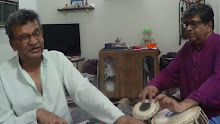Resume Writing tips for 2021
May 07, 2021
How Social Media is Killing Our Time?
May 07, 2021
Sexual Harassment of women
May 13, 2021
Categories
- animals and birds (1)
- arts (1)
- AUTOMOBILES (4)
- baba Ramdev (1)
- biography (2)
- books (4)
- Business (33)
- Carrier and Jobs (27)
- comparison (9)
- CORONA (6)
- crusades (1)
- cryptocurrency (4)
- digital marketing (9)
- education (4)
- ENTERTAINMENT (11)
- exercise and Yoga (10)
- Facts (5)
- fashion (1)
- Festivals (5)
- finance and investment (5)
- fine print (1)
- food and recipes (29)
- Games (2)
- General Knowledge (19)
- guest post (1)
- guitar (1)
- HEALTH AND FITNESS (48)
- hesitancy (1)
- Hindustan (1)
- history (5)
- holy war (1)
- how to earn (14)
- IMA (1)
- India (1)
- insurance (1)
- jehadi (1)
- jihad (1)
- Lic (1)
- life insurance (1)
- LIFESTYLE (76)
- medical (1)
- Motivation (35)
- music guru (1)
- nature (7)
- online tutorials (1)
- patanjali (1)
- piano (1)
- poetry (18)
- policy (1)
- politics (2)
- programming language (3)
- psychology and philosophy (5)
- Relationships (1)
- sanatan (1)
- Science and TECHNOLOGY (32)
- secular (1)
- share market (5)
- skills (25)
- social media (12)
- society (26)
- Sports (5)
- Stories (6)
- tabla (1)
- terrorism (1)
- tour and travels (20)
- tuition (1)
- universal (10)
- Vaccine (1)
- virus (1)
- vocal (1)
- worldwide (4)
- Writing (3)
What is stress? how it's effect in our life?
The Factual Cosmos
May 05, 2021
Stress is an ordinary response the body has when modifications transpire, ensuing in manual, volatile, and scholarly reactions. A stress surveillance regime can help you trade with aspects more healthily.
What is stress?
Stress is a conventional human outcome that transpires to everyone. The human body is formulated to withstand stress and react to it. When you undergo alterations or challenges (stressors), your body elicits physical and mental responses. That’s stress.
Stress responses help your body adjust to new dilemmas. Stress can be positive, keeping us alert, motivated, and ready to resist peril. For example, if you have an important test materializing, a stress response might help your body work harder and stay awake longer. But stress becomes a problem when stressors resume without solace or intervals of leisure
What transpires to the body during stress?
The body’s autonomic nervous system governs your heart rate, breathing, conception alterations, and more. Its built-in stress rejoinder, the “fight-or-flight response,” helps the body face stressful conditions.
When a person has long-term (chronic) stress, proceeded activation of the stress response causes wear and tear on the body. Physical, emotional, and behavioral indications develop.
Physical indications of stress include:
Throbs and discomforts.
Chest pain or a feeling like your heart is galloping.
Tiredness or distress sleeping.
Headaches, dizziness, or jerking.
High blood pressure.
Muscle tension or jaw clenching.
Stomach or digestive problems.
Trouble having sex.
Vulnerable immune system.
Stress can lead to emotional and mental indications like:
Anxiety or petulance.
Depression.
Panic attacks.
Gloom.
Frequently, people with chronic stress try to utilize it with unhealthy demeanors, including:
Drinking too much or too often.
Chancing.
Overeating or cultivating an eating disorder.
Contributing compulsively in sex, shopping, or internet browsing.
Smoking.
Using drugs.
How is stress deduced?
Stress is prejudiced — not measurable with tryouts. Only the person encountering it can discern whether is it present and how severe it feels. A healthcare provider may use censuses to understand your stress and how it affects your life.
If you have chronic stress, your healthcare provider can assess symptoms that result from stress. For example, high blood pressure can be diagnosed and treated.
What are some techniques for stress assistance?
You can’t avoid stress, but you can stop it from becoming overwhelming by disciplining some daily strategies:
Exercise when you feel indications of stress coming on. Even a short walk can stimulate your complexion.
At the end of each day, take a juncture to think about what you’ve obtained — not what you didn’t get done.
Set goals for your day, week, and month. Tapering your view will help you feel more in control of the moment and long-term chores.
Contemplate conversing with a therapist or a component of the ministry about your troubles.
What are some directions to stave off stress?
Numerous daily methods can help you keep stress at bay:
Attempts leisure treatment such as contemplation, yoga, tai chi, breathing workouts, and muscle recreation. Strategies are vacant online, in smartphone apps, and at many gyms and social midsts.
Take good care of your body each day. Eating right, exercising, and receiving sufficient sleep help your body handle stress much better.
Stay positive and practice applause, asserting the good portions of your day or life.
Accept that you can’t control everything. Find ways to let go of worry about crises you cannot change.
Learn to say “no” to extra obligations when you are too busy or stressed.
Stay pertained with people who keep you calm, make you happy, empower emotional support and help you with reasonable things. A friend, family member, neighbor, or member of your congregation can become a good listener or share responsibilities so that stress doesn’t become irresistible.
How extended does stress previous?
Stress can be a short-term issue or a long-term dilemma, being sure of what changes in your life. Annually using stress surveillance strategies can help you avoid most manual, volatile, and behavioral symptoms of stress.
Posted by The Factual Cosmos
Hi, This is Jitendra kumar Jain, graduated in English literature, politics and history. My hobbies are find New thing And represent it.You may like these posts
Random Post
3/random/post-list
Translate
Footer Menu Widget
Created By SoraTemplates | Distributed By Gooyaabi Templates



Social Plugin